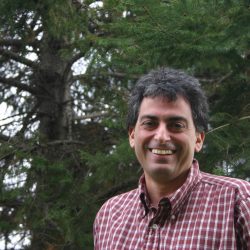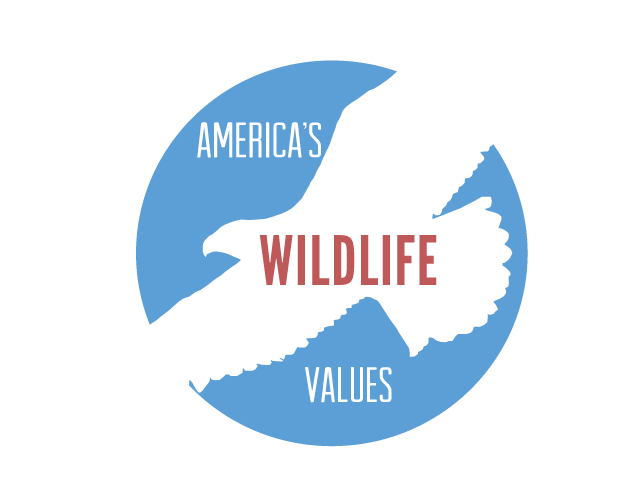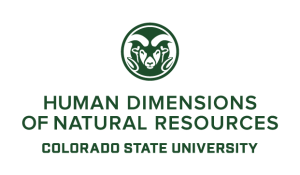RESEARCH TEAM
America’s Wildlife Values is a collaborative project supported by the U.S. Fish and Wildlife Service’s Multistate Conservation Grant Program. The research team led by Colorado State University’s Department of Human Dimensions of Natural Resources includes partners representing top academic/research institutions, regional fish and wildlife management associations, and state fish and wildlife agency personnel. Read more about the research team below.
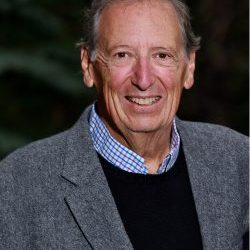
Michael Manfredo
(CSU Lead Investigator) is Professor and Head of the Human Dimensions of Natural Resources Department (HDNR) at Colorado State University (CSU). His research, teaching, and outreach activities focus on the role of social science in natural resource management, with a specific interest in applying attitude and value theory to natural resource issues. Dr. Manfredo has been a principal investigator on over 75 projects, with funds primarily obtained from wildlife and land management agencies. Among these efforts are the WAFWA-CSU Wildlife Values in the West, Understanding People in Places, and Children & Nature projects and the WAFWA-sponsored certification program, Advancing Human Dimensions Expertise among State and Province Fish and Wildlife Agencies. Dr. Manfredo has published over 65 peer-reviewed articles in a wide variety of natural resource journals, and wrote the 2008 book, Who Cares About Wildlife? Social Science Concepts for Understanding Human-Wildlife Relationships and Other Conservation Issues. Dr. Manfredo received B.S. and M.S. degrees from the Pennsylvania State University and his Ph.D. from CSU.
Tara Teel (CSU Lead Investigator) is a Professor in the Department of Human Dimensions of Natural Resources at Colorado State University. Her work focuses on improving conservation decision-making through understanding human thought and behavior and through building social science capacity among conservation professionals. Much of her research has been devoted to examining human-wildlife relationships in the U.S. and globally, with a particular focus on employing concepts and methodologies from social psychology to study human values toward wildlife, attitudes and behaviors toward wildlife-related issues, and the social factors underlying human-wildlife conflict. She works closely with conservation agencies and organizations in the application of social science to inform their planning, management, and communication efforts. She served as principal investigator on several previous WAFWA-CSU initiatives, including the Wildlife Values in the West, Understanding People in Places, and Children & Natureprojects.She also served as President of the Social Science Working Group of the Society for Conservation Biology (SCB) 2009-2014. Additionally, she has organized a number of social science trainings for practitioners, including a WAFWA-sponsored human dimensions certification program for wildlife professionals in North America, social science short courses for SCB annual meetings, and a training program emphasizing best practices in protected area management and conservation social science for forest service officers in India. Professor Teel received her Ph.D. in Human Dimensions of Natural Resources from CSU and M.S. and B.S. degrees in Fisheries and Wildlife Management from Utah State University.
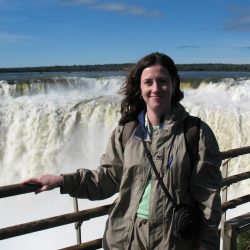
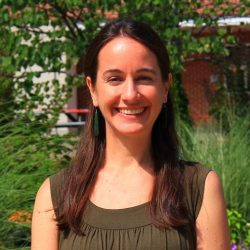
Alia Dietsch
Alia Dietsch (Co-Investigator) is an Assistant Professor in the School of Environment and Natural Resources at The Ohio State University. Her research primarily focuses on applying social science theories and methodologies to understand the influence of human thought on individual behaviors across various contexts, including 1) conservation decision-making and 2) the management of natural resources (e.g., wildlife, parks and protected areas). The majority of her work to-date has been closely aligned with state and federal natural resource agencies to inform planning, management and communication efforts. Dr. Dietsch has worked on several WAFWA-CSU projects including Understanding People in Places and the Human Dimensions Training Certification Program. She received her Ph.D. from Colorado State University, during which time she also served as a social scientist with the Socio-Economic Analysis Branch of the U.S. Geological Survey.
Mark Damian Duda
(Co-Investigator) is the Executive Director of Responsive Management. Mark holds a Master’s degree with an emphasis on natural resource policy and planning from Yale University, where he attended on two academic scholarships. During the past 25 years, Mark has conducted more than 700 studies on how people relate to the outdoors, including more than 200 studies on hunting and fishing participation. Mark is the author of four books on wildlife and outdoor recreation.
Mark’s research has been upheld in U.S. District Courts; used in peer-reviewed journals; and presented at major natural resource, hunting and fishing, and outdoor recreation conferences around the world. His work has also been featured in most of the nation’s top media, including NPR’s “Morning Edition,” CNN, The New York Times, Newsweek, and the front pages of The Wall Street Journal, The Washington Post, and USA Today. For 7 years, Mark served as a columnist for North American Hunter and North American Fisherman magazines.
Mark has been named Conservation Educator of the Year by both the Florida Wildlife Federation and National Wildlife Federation, was a recipient of the Conservation Achievement Award from the Western Association of Fish and Wildlife Agencies, and was named Wildlife Professional of the Year by the Virginia Wildlife Society. He also received the Conservation Achievement Award in Communications from Ducks Unlimited, as well as an award from the Potomac Ducks Unlimited Chapter for his contributions as a researcher and writer. Mark was also honored as Qualitative Researcher of the Year by the National Shooting Sports Foundation.
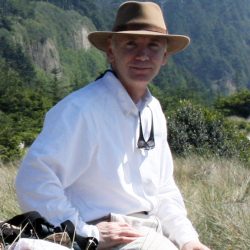
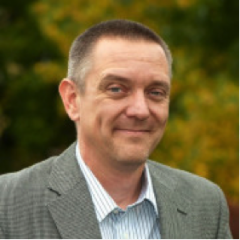
Jeremy Bruskotter
(Co-Investigator) is an Associate Professor in the School of Environment and Natural Resources at the Ohio State University and a member of the School’s Terrestrial Wildlife Ecology Lab. He has coordinated a number of projects applying tools and theory from the social sciences to better understand pressing issues in wildlife conservation. Current research projects include efforts to: (a) better understand social and geographic factors that impact participation in hunting and fishing; (b) identify factors that impact landowners’ decisions about land conservation and management; and (c) develop a psychological model of wildlife tolerance that can be applied to controversial species such as large carnivores. Dr. Bruskotter holds a Master’s degree from Utah State University and a Ph.D. from the University of Minnesota (both in Natural Resources).
David Fulton
(Co-Investigator) is Assistant Unit Leader in the Minnesota Cooperative Fish and Wildlife Research Unit, U.S. Geological Survey (USGS) and Adjunct Professor in the Fisheries, Wildlife and Conservation Biology Department at University of Minnesota. His research focuses on the human dimensions of fisheries, wildlife, and natural resource planning and management. More specifically, Dr. Fulton’s research is aimed at understanding and incorporating human values, attitudes, and norms into agency decision-making, and he has published many peer-reviewed articles and book chapters on this topic. He has conducted numerous studies for the Minnesota Department of Natural Resources, Alaska Department of Fish and Game, U.S. Fish and Wildlife Service, and National Park Service. Dr. Fulton obtained a B.S. in Sociology/Psychology from Texas A&M, an M.S. in Environmental Science and Regional Planning from Washington State University, and a Ph.D. in Human Dimensions of Natural Resources from CSU.
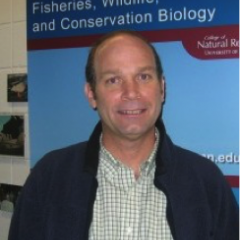
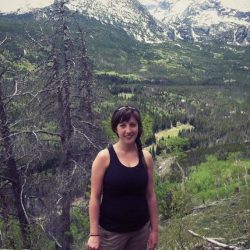
Leeann Sullivan is a PhD student in the Human Dimensions of Natural Resource Department at Colorado State University studying the role of agency characteristics and governance processes in wildlife management. Her previous research considered the role of community-based management groups in cross-border resource basins and their impact on social-ecological resilience. These collective efforts aim to bridge the gap between academic disciplines to support on-the-ground environmental practices that reflect the social, ecological, and political complexities of the real world. Leeann is a regular contributor to ABC-CLIO’s education network and most recently served as the communications coordinator for the North Central Climate Science Center. She earned her M.A. in environmental policy from Boston University as a Pardee Center Fellow and her B.A. in political science and geography from Ohio Northern University.
Lou Cornicelli
(Project Manager/Agency Liaison) is the Wildlife Research Manager at the Minnesota Department of Natural Resources and Adjunct Assistant Professor in the Fisheries, Wildlife and Conservation Biology Department at University of Minnesota (UMN). His work focuses on the human dimensions of wildlife, specifically in relation to hunting-related issues. Dr. Cornicelli has cooperated on numerous surveys and publications with UMN and also serves on the AFWA Science and Research Committee. Additionally, he is scheduled to teach a new undergraduate human dimensions of fish and wildlife course at UMN. He obtained a B.S. in Natural Resources from Cornell University, an M.S. in Zoology (Wildlife Ecology) from Southern Illinois University-Carbondale, and a Ph.D. in Natural Resources (Human Dimensions) from UMN.
